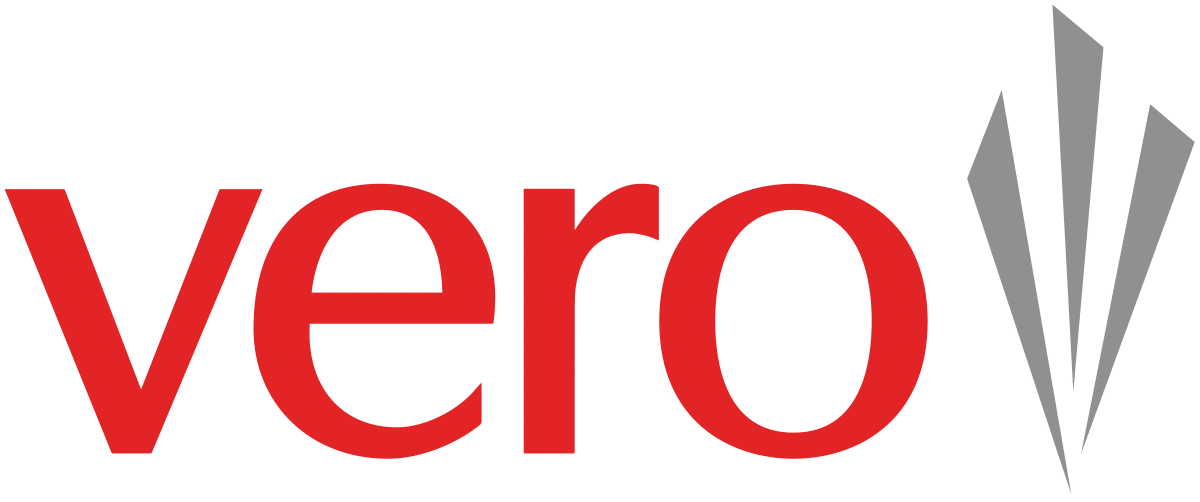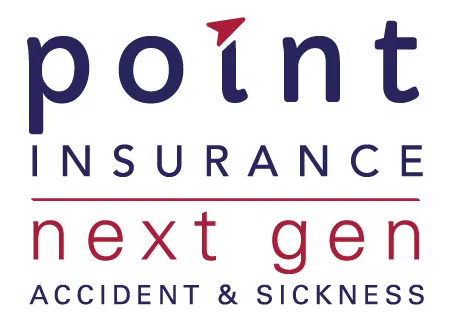Regardless of whether you’re running a small business out of your backyard or a large company in a city high-rise, there are plenty of potential risks that can rear their ugly heads and cost you a pretty penny. That’s why there’s a business insurance policy for just about any business size, industry and need. Before you jump into buying your policy, though, it’s worth comparing your coverage options to find what best suits your business’ needs.
What is business insurance?
Business insurance is a type of coverage that protects businesses of all sizes from financial losses caused by unexpected events or liabilities. There’s a wide range of different insurance types designed for a variety of needs. From a small baking business’ batch of muffins causing people to fall ill to a large consulting firm fighting claims of negligence in court, having coverage in place could save your business from forking out for compensation or legal costs.
The way it works is the same as any other type of insurance: you take out your policy, paying premiums monthly or annually, and are protected for a range of events included in your agreement. If a covered event does occur, you’ll pay an excess to your insurer and they’ll cover the remaining costs up to the amount specified in your policy. All claims and events are subject to your insurer’s terms and conditions.
What does business insurance cover?
In general, business insurance is taken out to cover two main things: financial losses and damage to business assets and materials. This can either be due to accidents the business is a victim of (such as a fire that damages your property) or is liable for (a customer injuring themselves on your premises or receiving negligent advice).
It’s worth noting that there’s a wide range of different types of business insurance, each of which comes with its own list of inclusions that are different from one another. You should familiarise yourself with what these different policies cover and work out which one is best for your business.
The types of business insurance and what they cover
Workers’ compensation insurance
This type of insurance covers claims of injury or illness to employees while working and any lost wages as a result. This insurance is mandatory for all businesses with employees.
Public liability insurance
Public liability cover is designed to protect businesses against claims of injury or damage to belongings while on your business premises or because of your activities by third parties.
Professional indemnity insurance
Professional indemnity insurance offers cover for claims of injury, financial loss or damages due to negligence, errors or breaches in professional duty in the services you provide to clients.
Product liability insurance
Similar in principle to public liability insurance, this covers claims of injury to a third party or damage to their belongings caused by products you produce, supply or sell.
Commercial property insurance
Commercial property insurance offers cover for damage to your business property’s structure due to a covered event like fire, storm, explosions or theft. Contents can also be covered under this policy.
Business contents insurance
This covers loss of or damage to your business’ contents, such as stock, fixtures or fittings, due to a covered event like fire or theft.
Business interruption insurance
You can be covered for loss of income or increase in operating costs due to a covered event, such as one that forces your business to temporarily close or relocate, with business interruption insurance.
Management liability insurance
Management liability insurance insures the company and its directors for legal costs and damages arising from claims of mismanagement or wrongdoing made against company management from within the business.
Business equipment insurance
Your business can be covered for loss of or damage to your business’ equipment, such as plant and machinery, as well as portable equipment like tools, due to a covered event.
Cyber liability insurance
Cyber liability insurance covers financial losses and reputational damage both to your business and to your customers as a result of a cyber breach or attack.
Tax audit insurance
This specific form of insurance covers costs incurred by your business related to a tax audit carried out by the ATO, such as paying accountants and other professional fees.
Small business insurance
This isn’t a product in itself; rather, it’s usually a package of one or more types of cover to provide small businesses with the protection they need.
What does business insurance not cover?
The exclusions of your business insurance policy will come down to the type of cover you take out and the terms and conditions of your insurer. Many of these come down to one policy not covering what another policy does (such as public liability not covering damage relating to products, as this is included in product liability). However, some of the general events that won’t be covered include:
- Criminal activity or negligence
- Fines and penalties
- Claims relating to asbestos
- Intentional acts
- Preventable events (such as being burgled after leaving a window open overnight)
- Events related to general wear and tear or lack of maintenance
What insurance do I need for my business?
Every business is different when it comes to its specific insurance needs. It’s important to ask yourself a few questions to determine which coverage types you might have to take out:
- Do you have employees? If so, workers’ compensation insurance is mandatory regardless of where you’re operating.
- Is your business customer-facing? Having a physical business premises where people meet you or meeting them at their homes will likely call for public liability insurance.
- Do you provide professional advice? Professionals like financial advisors, lawyers, doctors and accountants should all have professional indemnity insurance (and may be required to).
- Do you manufacture or sell goods? Product liability insurance is a must, as you could be on the hook if someone falls ill from your pies or ruins their laptop due to your leaky cup.
- Do you own your business premises? Commercial property insurance may be a requirement, especially if you’re still paying off the purchase, much like home insurance.
- Do you keep inventory on-site? Taking out a business contents insurance policy will help protect against damage to your stock, especially if it’s valuable.
- Does your business rely on online services? Housing private customer data that could cause major problems if leaked points to cyber liability insurance as a must.
- Does your business have directors? Management liability insurance can protect both them and your business if there are serious claims made against them by employees.
How much should I insure my business for?
The actual dollar figure for which you should choose to insure your business will come down to factors specific to you and the risks you face. Some of the things you’ll need to consider are:
- Your business’ size: larger businesses with more employees and customers are often exposed to greater risks.
- The nature of your business: think about the likelihood of having significant claims made against you. A small online crochet business is much less likely to have any such action taken against it compared to a legal or accounting firm.
- The value of the business’ assets and stock: if your business owns its property and/or valuable equipment, you may need a higher level of cover to insure them adequately. The same applies to the stock you buy or keep on premises.
- Industry insurance requirements: certain industries, as well as industry organisations, may require you to take out a certain minimum level of cover for public liability or professional indemnity insurance. We’ll unpack some of these requirements a bit later on.
How much is business insurance?
Business insurance varies widely in cost based on a wide range of factors. According to BizCover, the average public liability insurance policy taken out through them came with a monthly premium of $39, while the average professional indemnity insurance policy cost $102 per month.
However, in the current market, it’s becoming more difficult for small businesses to afford coverage. The Insurance Council of Australia (ICA) called for “urgent reforms to outdated state and territory laws”, against the backdrop of public liability insurance rising by up to 60% since 2019.
Some of the variables that impact the cost of business insurance include:
- The type of insurance you buy: each policy is different, so some will naturally cost more than others. There’s a big difference in the average costs of public liability and professional indemnity insurance, for instance.
- The sum insured: taking out a higher level of cover, such as to insure more valuable assets, will naturally lead to a costlier premium. BizCover customers in New South Wales paid $99 per month on average for a $2 million professional indemnity policy, compared to $127 for a $5 million policy.
- What your business does: businesses with higher risk profiles will be more expensive to insure. For example, policies taken out through BizCover by businesses in the architecture, engineering and technical services industry paid $209 per month on average, while those in consultancy occupations paid $106.
- The size of your business: operations with more moving parts will often attract high premiums compared to small businesses and sole traders.
- Your business’ location: whether your business is in an area prone to flooding, natural disasters or theft is of great importance to insurers. This may leave them at greater risk of damage due to a covered event.
- Your past claims record: businesses that have avoided frequent claims in the past are likely to be offered cheaper insurance premiums than those with a long list of claims.
All average premium figures from BizCover are correct for the 2023-24 financial year.
Finding the right professional indemnity cover
Yvette runs a retail travel agency and wants to take out a new professional indemnity policy. Her business is based in Sydney, has five employees and an annual turnover of $1 million. She decides she wants to take out $2 million worth of cover. Her agency has no history of business insurance claims.
Yvette fills out an online quote form for a comparison service and finds the following quotes:
Business insurance premium comparison
| Insurer | Monthly premium | Excess |
|---|---|---|
| Insurer #1 | $104 | $9,000 |
| Insurer #2 | $151 | $5,000 |
| Insurer #3 | $225 | $0 |
| Insurer #4 | $226 | $5,000 |
| Insurer #5 | $245 | $0 |
|
Insurer #1 Insurer #2 Insurer #3 Insurer #4 Insurer #5 |
|
$104 $151 $225 $226 $245 |
|
$9,000 $5,000 $0 $5,000 $0 |
Prices based on real quotes obtained from BizCover on 22 October 2025. Quotes based on the above parameters. These are for illustrative purposes only and do not necessarily reflect the policy your business will be offered.
Although Insurer #1 offers the cheapest policy, Yvette decides that Insurer #2 strikes the best balance between low price and good coverage, so she buys her policy with them.
The pros and cons of business insurance
Pros
-
Protects your business against a range of events
Of course, the #1 benefit of having business insurance is the financial protection it offers you against a variety of potentially costly events.
-
Provides you with peace of mind
Having a business insurance policy in place can give you greater peace of mind that your business will be able to push through if a covered event takes place.
-
Keeps your business compliant
If you’re working in an industry or are a member of an organisation that requires a certain level of insurance, having coverage will ensure your business remains compliant.
Cons
-
Can be expensive
Of course, depending on your business and its claims history, among other factors, the cost of your policy may be steep.
-
May not feel valuable if you never make a claim
Paying hundreds or thousands of dollars each year for a policy you aren’t using might seem like a waste, but it can still provide valuable cover if disaster strikes.
Is business insurance compulsory?
In most cases, having business insurance isn’t usually mandatory by law. However, there are some situations where it’s compulsory. These are:
- Workers’ compensation insurance for all businesses with employees
- Compulsory third party insurance for all businesses using motor vehicles
- Industry-specific public liability insurance, which depends on the nature of your business and which state or territory you’re operating in (for instance, builders may be required to take out public liability cover of up to $20 million to operate under the Queensland Building and Construction Commission, or QBCC).
- Industry-specific professional indemnity insurance (in New South Wales, South Australia and Victoria, practising solicitors must hold at least $2 million in cover)
You’ll need to check with your industry body, or a professional business adviser or insurance broker, if you’re unsure which policies are required. The Federal Government’s adviser finder helps you locate professionals and organisations close to you.
Regardless of whether it’s compulsory, having the right cover is essential for several reasons:
- Asset protection: your company's assets, including physical property, equipment, inventory and intellectual property can all be protected against damage or theft.
- Liability coverage: accidents happen. If your business is held responsible for causing property damage or injury to a third party, insurance can cover the cost of legal proceedings and settlements.
- Business continuity: insurance can help keep the lights on in the face of costly interruptions and lost income.
- Peace of mind: knowing that your business is adequately protected by insurance is worth the cost of the policy for many owners.
How to take out business insurance through Savvy
-
Fill out the quick online quote form
Share details about your business’ industry, size, revenue and more.
-
Compare quotes from insurers
You’ll be able to see quotes from our partner’s panel of business insurers side by side.
-
Choose your policy and buy it
If you see one you like, you can go ahead and buy it. It really is that simple.
- How much does Public Liability Insurance cost? - BizCover
- Professional Indemnity Insurance cost - BizCover
- Reform of state laws needed to reduce business insurance costs - Insurance Council of Australia
- Types of business insurance - business.gov.au
- Insurance responsibilities - Queensland Building and Construction Commission
- Top-up time: Don’t get caught short with your professional indemnity insurance - Lawyers Weekly
- Adviser finder - business.gov.au
- Deductions for operating expenses - Australian Taxation Office
- Professional indemnity insurance - Tax Practitioners Board









